Episode 295 - The Business of Making Baseball Fun with Savannah Bananas' Jared Orton
Jared Orton is the President of the Savannah Bananas, a baseball team unlike any you’ve seen before.
They create an entertainment experience that’s part dance performance, part trick plays, and part competitive baseball.
Jared has experienced all the ups and downs that come from innovating in a space with a legacy. Since the organization’s founding in 2016, he and the team have had their share of doubters. But they’ve faithfully stayed true to their mission: to create something fun and joyful for every attendee.
Over the years, they’ve grown from a small, regional team that struggled to sell tickets to a nationwide phenomenon playing in front of sold out crowds in major league stadiums across the country.
He joins the Faith Driven Entrepreneur Podcast to talk about the value of innovation, fun, and excitement for businesses and for the world.
All opinions expressed on this podcast, including the team and guests, are solely their opinions. Host and guests may maintain positions in the companies and securities discussed. This podcast is for informational purposes only and should not be relied upon as specific advice for any individual or organization.
Episode Transcript
Transcription is done by an AI software. While technology is an incredible tool to automate this process, there will be misspellings and typos that might accompany it. Please keep that in mind as you work through it.
Commentator: I don't believe what my eyes just saw. The lights. The ball on fire is there. He's got a back flip and make the catch.
Joseph Honescko: The Savannah bananas aren't your average baseball team. And they're completely okay with that. They're not looking to just fall in line with every other sports team out there. They're looking to build something entirely new.
Jared Orton: We're never going to win the World Series, right? We're never going to play against the Chicago Cubs, but we could compete on fun.
Joseph Honescko: That's bananas' president Jared Orton, who has been with the club since they reinvented themselves in 2016.
Jared Orton: We were trying to create a tension here in the marketplace and get people talking about this thing.
Joseph Honescko: Since the club's founding. Jared has experienced all the ups and downs of innovation from an entire city, doubting their ability to stick around to selling out major league stadiums with crowds gathered to watch a new version of baseball that they call Banana Ball. It's part dance performance, part trick plays in part real life baseball. These are real athletes competing for wins and having fun doing it. So what does it look like to pursue fun, excitement, and joy as a product? How do you innovate in a space that has stayed the same for generations? And how do you scale a brand from a small regional product to a nationwide phenomenon? I'm Joey Honescko, and we're diving into all that and more on this episode of the Faith Driven Entrepreneur podcast. Let's get into it.
Justin Forman: Joey, before we get to that. People cannot see the grin on your face, but they need to. We need a screenshot of this hearing on the podcast. Somehow some shape form. For those that do not know. Joey, the fearless leader here is a die hard baseball fan. So this is a moment for Joey where he gets to see faith, work, integration, and the love of baseball intersect. What a gift that is.
Joseph Honescko: So yeah, yeah, we're talking about fun and playfulness and excitement, and I'm just experiencing that kind of first hand on this episode. So that's a huge joy. And Jared's going to help us dive deeper into those concepts here in this episode. But before we welcome him on, Justin, I'd love for you just to share for a second why these things are actually valuable and important for faith driven entrepreneurs to be thinking about in their own life and in the things they build as well.
Justin Forman: I mean, this is going to be fun. Yeah, what a gift it is to have this podcast and what a challenge it is. As you said, to talk about it, building a business is hard. Building a team and especially scaling is hard. And wrestling through those moments along the way. We had just a great opportunity to talk about that with booster and to spend some time with Chris. And I know that, you know, as a movement and as an organization, we're going through that of just what does it look like to scale and how do you do that and have fun doing it? And how do you do that? Miss all the stress, as we might say, the thorns of business that are promised to us from the beginning and wrestling through that together. So yeah, really looking forward today.
Joseph Honescko: Yeah. So we'll jump in with, Jared Orton. Jared's the president of the Savannah Bananas. And I could try to do justice in explaining it, but I think that it's going to be much better if I just, let Jared take the reins, because I'm sure our listener base, some of them are going to be familiar, but others may not have a full understanding of exactly what's going on with the Savannah bananas. But the summary that I understand is you guys essentially took over a small college summer league team, and now you've made it. This cultural phenomenon and this unique sports entertainment experience. Give us just a little bit of, grounding and context of what the Savannah bananas are and how this ended up happening.
Jared Orton: Yeah. It's fantastic. Thanks for having me on here. This is really exciting to talk about. You know, the Savannah bananas really should not exist for the most part. You know, we started as you kind of mentioned, there was a stadium still is a stadium, obviously in Savannah, Georgia, where, you know, on that site, professional baseball has existed for almost 100 years. In 1926, professional baseball started at that site in Savannah and, you know, went on for 20 some odd years. And then that stadium actually fell down and in the 40s was rebuilt as what we know today as Grayson Stadium. And for 80 some odd years after that, up until 2015, professional baseball was in Savannah, Georgia. In 2015, the team that was there basically said, you know, we're done. Baseball should not exist in Savannah anymore. You know, the stadiums bad, the cities bad, everything. You know, so much negativity surrounding that. And so we got the bright idea to say, well, great, let's, you know, start a baseball team in Savannah, Georgia, right at this old historic stadium. And myself and my partner in this thing, Jesse Cole and his wife, Emily, the three of us, you know, we said, oh, let's start a baseball team in Savannah, Georgia. Right. But at the time, as you mentioned, we were actually a college summer team. It's college summer wooden bat league team where we were coming in off the heels of professional baseball. And so we were made fun of, you know, from the jump. You know, people said, well, this is not professional baseball. It's professional baseball. Couldn't, you know, succeed here. And how the heck is college summer? You know, wooden bat league baseball going to exist? And then we doubled down. We said, well, we'll tell you why it's going to exist. You know, we're going to have dancing players and we're going to have, you know, all this chaos and fun and excitement. Then they were like, okay, no, this is absolutely ridiculous. And we just got made fun of and, you know, told it was going to be a big failure and rightfully so. You know, they had been kind of told the same thing. You know, year after year after year, a new ownership group comes in and they say, oh, we're going to do things differently and we're going to make it all about the fans and all that stuff. And so I think people had kind of had maybe a sour taste in their mouth at some point. They were like, we've heard this enough. We've heard, you know, new ownership group, new ideas, new fun. And we said, no, no, no, no, we're going to prove it. And, you know, it was tough sledding early on. Real tough sledding. I mean, we couldn't sell tickets. You know, we couldn't really get any interest in this thing. And early on we did not have a logo or a name really at that point. But really people doubted this thing from the beginning and it got so bad. You know, we'd only sold a handful of tickets and we weren't selling sponsorships and all this stuff. And, you know, we were low on cash and just trying to make this thing work. We had a few full time people, a bunch of young people trying to get this thing going. And it was really disheartening, you know, super disheartening to think, you know, man, we came into this thing, thing. We had all these ideas. But what we realized was we were just kind of doing the business the same way everyone else had thought about it. You know, we were doing marketing like everyone else. We were doing, you know, social media. We're just doing everything like everybody else. And it wasn't until we came out with the name, obviously, of Savannah Bananas in the logo. And, you know, all that, that really we were trying to figure out how are we going to compete for people's attention. We've got to create attention here in the marketplace and get people talking about this thing. That's the only way we can get this thing going is if we get people's attention and get them talking. But, you know, we realized and we told people it's not just about the logo. It's not just about, you know, a flash in the pan, one hit wonder. We got to prove that the experience also is dramatically different. And, you know, we got ridiculed and criticized for the name. People said this is an embarrassment to Savannah. You know, you can't be named the Savannah bananas. What's fruit, you know, have to do with the city of Savannah? This is, you know, basically the story of this is we've been told we're an embarrassment from day one, you know, all the way until today. But we've had this relentless focus on making baseball fun. That's been the core thing from day one. Make baseball fun, make baseball fun, make baseball fun. And that's been our guiding light from day one, and we've been committed to that. The variation of how that happens looks dramatically different. You know, it looks dramatically different from how we made baseball fun on day one versus how we now make it fun here in 2024. But that's been the North Star. Make baseball fun. And you know that's what we compete on. You know we're never going to win the World Series right. We're never going to play against the Chicago Cubs. But we could compete on fun. And that's where we chose to compete at. And we thought, whether you're a baseball fan or not, we feel like the world is searching for fun. And whether you're two years old or 92 years old, it doesn't matter. Socioeconomics the color of your skin, where you come from, how you grew up. People like to have fun. And so that's where we compete, and that's what we think about every single day.
Joseph Honescko: Yeah, I really want to come back to that idea of the world needs fun, whether you're 2 or 92. I love that concept. But before we dive into that, I think it's important for our audience to get a sense of the scale here because, you know, early on, it sounds like it was this old historic stadium in Savannah. It kind of a cool, like regional thing that was going down. But at this point, I mean, I was on the website earlier, you guys have sold out Fenway Park. You're on a huge tour right now of MLB and minor league stadiums. I know you were near [......] In Houston not too long ago, so maybe just talk a little bit about how this has grown. And, you know, Justin mentioned scaling at the beginning of this. Talk a little bit about that process of taking this thing that's kind of localized and now making it a national product, and then maybe getting a little bit of a sense of what one of these games looks like.
Jared Orton: Yeah. That's great. So that first year, you know, 2016, we were dead set on can we sell out a few games. Right. And it was it was different. It was fun. You know, it was a lot of things that people had never seen before. And, you know, we tried to pack a ton of value into it. And like all of our tickets included all the food and drink in the ballpark. So like unlimited hamburgers and hot dogs and chicken sandwiches, you know, it was like this value packed entertainment base through and through. And we were fortunate that first year and we sold out, you know, the first game right at the last minute, like we were able to like sneak one in and sell the first game out. And we announced to the public the game is sold out and people lost their minds. They were like, what, no game sell at a Grayson Stadium? And immediately then the second game sold out. And then like the fourth game, in the seventh game and so on and so forth. And we were building this demand of like, hey, we're going to make this awesome, and the experience is going to be great, and you better get your tickets now. And if you don't, you're going to be left out. And we continued that process 17, 18, 19. And it got to the point 17, 18, 19 every game was sold out at home at Grayson Stadium. And you know, we're in the league. We won the championship the first year and we were team was always good. The entertain was always awesome. We were always pushing the envelope. And we realized as an organization, really as we got into 2020, 2020 was almost it was really stressful and obviously really tough for everybody, but gave us actually a chance to kind of think about like, well, what's next? You know, we get through this, like, what are we doing? And we kind of got to a point as a business where we realize we can only have so many games, we can only sell so many tickets, we can only do so many things. You know, we're going to kind of flatline. And is that fun for us to just do the same old, same old every single year? Is that fun for our players? Is that fun for our staff? Is that fun for our fans? For our community? Like, it's not exciting to just tell people, all right, guys, let's do it again next year. Same thing. Like let's just be the same and. A conversation came up. We were reading a book called The Vision Driven Leader by Michael Hyatt, and a conversation came up and we asked, as a team, kind of collectively our leadership team, and we were like, what would it take for the bananas to be a 24, seven, 365 brand? Like, what would it take for us to build fans? 24/7 365 through content, through our demand, through merchandise? And then ultimately it was like, what would it take for us to build more fans outside of Savannah, or a different game, or a different market or a different experience? What would that look like? And we had been testing this idea of an alternate form of baseball. It was not called banana ball at that point, but we had this alternate form of baseball that we had been testing, and we were testing the two hour time limit. We were testing, you know, can't step out of the box. We're testing fans, catching foul balls around. We're testing all these things. And so the conversation came up and we said, what if we went on a one city world tour and played banana Ball? It wasn't called banana ball at that point, but the idea of banana ball and we were like, well, is there a stadium that would take this? And we found a stadium in Mobile, Alabama in 2021, a not abandoned but basically abandoned stadium they had left the previous year and they took us on and we went on a one city world tour to mobile, Alabama, and 7000 people showed up and the back of the t shirt, you know, like a band tour t shirt. It just said mobile, mobile, mobile, mobile, mobile all the way down the back. And 7000 people showed up to mobile, Alabama to watch the Savannah bananas play. I think the party animals at that point, and we had hired some like, you know, former players and some local players, and it was remarkable. At 4:00 in the afternoon, there was a line of people through the parking lot waiting to get in, and we were all just like, oh my goodness, what is this? And then in 2022, we went on a seven city world tour, really ramping it up. And we did that in the springtime and we played it like West Palm Beach. And we went to Daytona. We went to Kansas City in a couple other places, Montgomery, Alabama, and there was like 50 or 60,000 people that showed up over those seven cities. And we also played games in Savannah during that time. And all of a sudden we started realizing, like, we're really starting to build fans in a way that we could never do when we were just playing in our league. Now we were still playing in the league, but we're still doing this touring, and we came to a crossroads where actually our fans were starting to get confused. They were like, wait, I'm hearing about this banana ball thing where it's two hour time limits and fans catching foul balls for hours and there's no bunting and there's all the dancing. And I heard there was a guy on stilts and I heard you had a break dancing, you know, umpire. But now I'm at this league game where it's nine innings and the rules are on the same, and I'm just confused about what's going on. And we were like, now we have a real decision to make. We had this thing that we started with traditional league baseball, which we're good at, and it's fun and it's easy and it's repeatable and everyone knows it and everyone understands it. But we've got this new thing that actually allows us to grow the brand and our fan base. 24/7 365 what do we do? And we made the decision to abandon the traditional league format, and we went all in on what we now call banana ball and touring. And now in 2024, I'm sorry, 2023, we went on a 33 city, more of a world tour, you know, coast to coast, and played in front of half a million people last year in 2023. And then, as you mentioned now in 2024, we're playing in six major league stadiums. Fenway Park will play in front of a million people this year, live in person. A million people will watch the Savannah bananas play this year. And that's the scale. Now that it's become of this relentless focus on one more fan, one more fan, one more fan, and build this brand of banana ball. 24/7 365.
Joseph Honescko: So I want to jump into that because it sounds like you came to this crossroads. You had this opportunity to stick with the traditional route with the Summer League. You could have continued that, but you saw this opportunity to choose the fun alternative. I guess we could call right and lean into this entertainment thing. And you said that idea earlier that the world needs more fun. So maybe just talk a little bit about I mean, obviously it was a smart business decision. There was that. But what about this idea of the need for fun and excitement? What is it that you think is important that the world needs more of that?
Jared Orton: You know, we wrote about it when we were going into our first kind of new vision back in 2020, kind of talking about how this future of touring and banana ball and our players and things like that. And at the end of the vision driven leader, the whole question is like, well, why does this matter? You do all this great, why does it matter? What's the impact? That it makes and we share this with our staff. I'll share it with our staff here. We've got a meeting here at 1:00 local time here in Fresno, and we'll share with our staff today. You know, people are coming from all over to this game today, and they're coming for a reason, whether they know it or not and whether we know it or not, they're coming for a reason. Some are more pronounced. Some are not realized. And what I mean by that is every night we meet fans who say, you know, my family hasn't been on vacation and however many years, but we saw the bananas on TikTok, Instagram, whatever. And this is our trip. Like, we got together as a family. We drove down here like, this is our thing. Or they'll say, you know, I haven't seen my grandmother in 30 years, but she lives here. And she found the bananas and we wanted to come see her. And we're coming to the game tonight, and we hear the fun stories, and we hear the sad stories, and we hear that someone just beat cancer or someone hasn't beaten cancer. Or we find out that it's someone's birthday, right? Or we find out that a kid, you know, lost a parent, or we find out that, you know, there's a plethora of things that we find out through social media or just by listening or just by being attentive to people, just by finding out what the heck's going on in people's lives. There was a fan who's in our fan club who we found out that he not really found out he was making a big deal of it, but it was his birthday. And, you know, that's cool and that's special. And you could do something fun for him. But he builds these like, AI like miniature bobblehead things for our staff. And he like, you know, sends them an email and things like that. Well our staff went and got a real one made of him, and he didn't know that. He didn't know what's happening. And they went and got a cake and they went and got balloons and they got cards signed by the entire team. Right. And on and on and on and on. And when he came to the game, they presented it to him. And this guy, grown man, emotional that people would think about him in this way. And he wrote a post, you know, later on in the week. And he just talked about like how he was just struggling personally with anxiety and depression. And, you know, the bananas were like his thing. They were just his outlet to come together with a group of people who appreciated him and recognized him and made him feel special. And for every one person that speaks out about that, there's again, we're going to play in front of a million people this year. And that's the impact. And that's what we share with our staff, that you've got the opportunity to make an impact on somebody, to make a real moment, and that moment might just be high five and a kid and saying, hey, welcome to the game. Or it may be finding out that it's someone's birthday and going above and beyond for them, and really making the impact on their life, or finding out that someone is celebrating something, or finding out someone's having a sad freaking day. And you know what? The bananas could be that help for them. And so we know that people are looking for belonging. They're looking for community. They're just looking to have fun because life gets in the way. And we hope we can be a little bit of that escape for people, and we hope we can provide that human touch, you know, for them as well. And so, you know, we travel with 150 some odd people to all these games, super, super psychotic to travel with that many people. But we provide a lot of high touch experiences because of that. And so, you know, when you travel with 150 people, that's 150 some odd moments that hopefully can happen. And so whether that's in person or they reach out to us over the phone or email or social media, that's what our team, you know, exists to do. And so that's the impact that we hope we make on these tours.
Justin Forman: It's powerful to hear the story. You know, we were just with the team from Dude Perfect Kobe Cotton and selling some stuff here recently. And just, you know, when they started their story, they started with X and it was trick shots and some friendships and relationships. And one thing leads to another. And then you kind of step back some couple of years into the journey and realize, what is this year? And it sounds like that's kind of some of the the journey for you guys is you started with baseball, then you kind of step back and you say, man, this is about fun and and experiences. And there's that pivoting kind of moment how much like, you know, I mean, obviously I grew up with Harlem Globetrotters. We probably all did just in some extent or another. And yet, there's some parallels, but maybe there's not some parallels because I don't think the Washington Generals ever won a game. However, the Savannah bananas occasionally lose a game. The party animals. But like, what is the tension here? Because you are entertainment, but yet there is some baseball. You haven't fully gone one over the other, but you're finding that kind of happy fun tension of the two of those.
Jared Orton: That's right. Well, we've realized is that people are smart. You know, the consumer our fans they're smart people. And yes, they want to be entertained. But we feel our brand of sport also needs to be believable. You know that you're watching a real story unfold in front of your eyes, and it might change tomorrow night, and it might change when you come to the game in three weeks, and that you have real people competing on a field. Real athletes, real athleticism and real moments that you just don't know what's going to happen. And while our games are scripted in a sense of we have characters, we have performances, we have songs and dances and comedy and skits and bits and celebrations and recognition. We have all that stuff. But there's a moment where the ball gets put in play, and a 93 mile per hour fastball is thrown and a swing is made. And [......] sees that ball come off the bat and decides, and quite literally, a split second, that he's going to now do a backflip and catch that ball in centerfield while he's doing a backflip and huzzah! You've just been wowed by something you will never see at another sporting event or another baseball game. You know, we do not pause the game so that he can do a backflip or, you know, Ryan Cox can do a double play between his legs. It is in the moment, real life. This is happening and there's failure. You know they'll try however made trick plays tonight and they're not going to get a ball. And that's awesome. And our fans appreciate that. Like they're going to push the limit and try something new. And yeah the bananas might win tonight. The party animals might win tonight. And it's competitive through and through. But there's also just so much fun and entertainment that happens outside of that, inside of that, around it all the way through that. Our hope is that you want to continue to come and stay engaged and be a part of this for the long term and not just say, yeah, you know, went to it, saw it once, no big deal. Don't really have to go back. You know, we want people to stay engaged for the long term. That's our view. And all of this is long term fans over just flash in the pan operation.
Justin Forman: So double click on that for a moment. Because growing up at least you never heard of like people going to the Harlem Globetrotters multiple nights in a row, multiple games in a row. Oftentimes it was like I did that once.
Jared Orton: Yeah.
Justin Forman: How have you guys really looked at that from the difference point of saying, okay, we're creating something that's creating a fan and there's multiple points of engagement, social media. There's there's more than just what happens even in the diamond. I mean, most of us probably found out about this because of a yellow suit and a social media clip. Like, I mean, some of those things like that. What are the multi facets that you've approached this in?
Jared Orton: We are on this journey now where, you know, it all started with the Savannah bananas, right? As a single entity, single brand. And now yes, the bananas have a dramatic head start obviously. But now the idea is how are we building banana ball as a sport, as a game, as a entertainment experience where you might also be a fan of the party animals? And we just rolled out a third team, the firefighters, and they're going to debut on the field here in a couple weeks, actually, and you might become a fan of the firefighters and you might identify more with, you know, the coach of the party animals or the coach or the firefighters or the new team or the, you know, team that came in, or the player that just started with the bananas and maybe got traded to the other team. And we want the bananas versus party animals experience to be one thing. But when the party animals this summer go play against the firefighters, it's not just a oh, that's just the bananas game wrapped up in pink and black. No, it's a party animals experience with their own host and DJ and band and characters and coaches. And, you know, it's an entirely different vibe. And so that's how we feel like we're going to continue to build this brand of banana ball and grow that fan base globally, because the bananas cannot play 200 banana ball games, right? That's impossible. We can't contribute that many that number of games people get worn out. And we also don't want the bananas to have an A-Team and a B team and a C team and a D team. You know, if we're in California one night, the bananas can't also be playing in North Carolina the same night. Like again, going back to what I said earlier, our fans are smart. People are smart. They want real. They want to know it's authentic. They want to know that they saw. Oh, that's the team right there. Those are the guys I follow. Guys and girls now. And so that's how we're going to continue to grow this thing. And then they all have their own social media presence. And they all build their own content the same way. And they all have players who are also building content. But that's how it's going to keep staying fresh. And that's how more fans hopefully are going to weave into this thing and know that we are building the game of banana ball collectively, while these teams contribute to that.
Joseph Honescko: I think what's so interesting about what you're saying, Jared, is that, you know, it's not you said there's obviously scripting, there's dance cues, there's things like that, but you can only script a baseball game so much. I mean, like I said, at 93 mile an hour hiter comes at you, someone's going to swing. They're good baseball players. But saying, I'm going to hit it exactly right here at this spot in this guy's going to do a backflip and catch it. There's a lot of room for that competitive nature to come out. And I think there's a really interesting marriage happening where you're doing something that is both incredibly fun and exciting, but also inherently competitive. And so I'm wondering, often those two things seem at odds, right? And I think professional sports has gotten there where I think of, Ozzie Smith back in the day doing a backflip before every Cardinals game. Right. No one is risking, you know, pulling a hamstring or whatever at the rate they're doing at this point in professional baseball. And so it seems like there's been this separation between the fun in the competition. But you guys are bringing that back where it's a split between those things and they're kind of holding them in common. Am I understanding that right.
Jared Orton: Yeah. Yeah. Well we've shared with our team and you know, it starts with our coaching staff as well. We've got a fantastic coaching staff who understands this is the game we're playing. Right. And the whole concept is that we want to give these guys permission to have fun at these games and know that you're not going to be punished if you miss a trick play. Now there's some feel that these guys have and they know, like, all right, am I going to take this risk here with two outs when I could just get this third out and make it easy? Or am I going to take the risk and like, do a trick and maybe it fails, maybe it doesn't work, but isn't that cool for our fans to know that? Like, we're not going to be safe in this thing. These guys are actually going to risk it. And you know, we give that permission to our staff as well. Like, hey, we're here to have fun. We're here to give fun. And like, that's going to be the nature that's saying, you know, obviously we take our work seriously and the guys take their training seriously. They take the games here like they take it all very seriously. But they don't let that seriousness, you know, overwhelm them where it's like, now I'm taking myself too seriously. Now I'm like, I'm all bottled up in this thing and I can't actually let loose. And, you know, it's always been a personal struggle for me. Like, I want to be locked in, dialed in. I want to get things right. I want it to be perfect every single moment. And sometimes that doesn't allow me to have as much fun in the moment. Realize, dude, look at all these awesome things we're doing where my mind is like, yeah, but we could have done it better, right? Like we could have done it for awesomer. And that's been something that I'm trying to work on as a leader, as a person, to know that, hey, it's okay to step back just a moment and realize, let's risk it here. Let's have some fun. Let's see what happens. Let's let loose. And not one or the other, you know, make people choose like, well, you either got to be serious or you got to be fun. You either got to do all the plays correctly or you got to do all ten, you know, one or the other. And so they just know that, like, this is what this game is about and this is what we're going to judge you on is what you're gonna be incentivized for. And I think it pays off, you know, for our fans and our players.
Justin Forman: I love that balance of what you're talking about. They're about the innovation, the balance of stepping back. As entrepreneurs. It's tough. We're always driven, always looking for the next the better. But you're hitting on an element here of you want to keep innovating, kind of almost keep changing, keep throwing new things so that everybody's collectively experiencing more satisfaction, more engagement, more joy in recognizing the culturally. If you're doing the same thing for too long, there might be some routines and some of that fatigue, if you will, or boredom or whatever it might be set. And how do you walk that tension of always innovating, always changing, always adding some new wrinkle in? And what does that do for the team?
Jared Orton: Right. For me it's a game, you know, it's like. I'm always looking for the next step, not looking for the next thing. It's like I got to get this rush. But like, I feel like if we're not looking for, well, how could it have been better? I love what we did. How could have been better? Then it's like, oh, I guess we're just kind of okay with it being the same and what we've told our team. And from the outside it can look like, well, we just throw things at the wall and, you know, see what happens. We explain to our team, it's like, you know, the marketplace demands that we change the marketplace. People, culture, interest, attention. It demands that we change, demands that we do something different. It demands that we do something new. It demands that we do something unique that people have never seen before. You know, that's what the marketplace. That's what human nature demands of us. And so if we are just one of many. Same old, same old, you know, if we're just one of many sports teams or one of many entertainment experiences or one of many options, then what are we competing on? You know, at that point you're just competing on, well, are you the cheapest or are you the most convenient? And you know, we like being fair price, but we don't want to be cheap and we don't want to be just the most convenient. We want to be the most different. We won't be the only who is out there where people come to these games and they get to the end of it and they say. I've never seen that at a baseball game. I've never seen that at a sporting event before. You know, they go home on Sunday, Monday, Tuesday, whatever. And they say you wouldn't believe what I saw the game last night. You know, they pull their phone out and show their friends. Like we go through those experiences and we say, okay, Joe and Justin leave our game tonight. They're going somewhere. They're going back to work on. We literally play this out in our head. They're going to work on Monday. What do they say? What do I tell people? You know, we start with the end in mind and we want to create a remarkable experience. Well, Seth Godin, you know, famous marketer, talks about being remarkable. He says, well, if you want to be remarkable, the definition means you have to be worth remarking about. You have to be worth talking about. And so if people are just apathetic to our experience, we haven't given them anything to talk about. We haven't done our job. And so then we start working backwards and we say the marketplace demands that they want to talk about the cool things that they did. And so we have to work our ideas in ourselves, in our experience, in our tickets and our merchandise and the whole thing to ensure that they leave that stadium, that game. And they say, oh my goodness, you wouldn't believe how kind they were with the experiences like this video that I saw them do. The way that they helped my child. You know, the people who are selling us merchandise, the people who scan my ticket said, oh my goodness, you would not believe what it was like. And that's, you know, that's always changing. That's that next thing that we're always striving after because we tell our staff every night it's someone's first game tonight. You know, there's 10,000 people come to the stadium. It's at least one person's first game tonight. So remember that you have an opportunity to make that first impression.
Justin Forman: So let's bring faith into the conversation. Tie this to us together. We spent so much time talking about joy. We talked about fun. We talked about the excitement. We talked about the experience. Talk about how that connects to your. Why?
Jared Orton: Yeah. When my wife and I first, you know, contemplated moving down to Savannah to do this with Jesse and and when all that, you know, for us, it was we have this opportunity to have this platform to serve people and people from all over and people internally and people externally. And, you know, we had no idea obviously, that would grow to you know, we have 70 people that are in our office now. And, you know, we hire hundreds and hundreds and hundreds, you know, locally in most places. And we got full time players and millions of people that we see, you know, these stadiums. And it's like, Holy smokes, we've been blessed with this opportunity to be genuine servants to people and share the love of Christ with them and be that example to them and be kind to them and be compassionate to them, and have those conversations that we would never get to have with people if we were anywhere else, I don't think. And so that's what we think about. We can also not think about on a regular basis that, you know, this is this amazing platform to share that compassion and kindness and love crowds of people. And what a great honor to do that and the public forum and, you know, talking with guy or one of the pastors at our church a while back. And he was like, I'm jealous of people like you. You know, you get to he's I just hang out with church people all day, man. Like this. Boring. Like, what if I was out there in the world with you guys? And so that's humbling. And but what an opportunity to to have that.
Joseph Honescko: Yeah. That's something we think a lot about with faith driven entrepreneurs. Just the unique opportunity for entrepreneurs, you know, business leaders that are out in the marketplace and that gives them unique opportunities to share the love of Christ that even, you know, pastors or missionaries as good as the work that they're doing, they may not have those same kinds of opportunities. So love the way that you're talking about this, love the way that you guys are doing that through the Savannah bananas. I think of even just y'all's slogan, which is that fans first entertainment. Maybe it's more of a mission, but that fans first entertainment in some sense is putting others before yourself, right? Putting the fan, creating those experiences. So really cool stuff. Jared. As we come to a close here, we like to end every episode that we do on the podcast with the same question, which is, just what is God teaching you now? Kind of in this moment? Maybe it's in his word, maybe it's in a quiet time, maybe it's something that happened today or a week ago. But where are you seeing God encounter you kind of in this season of your life?
Jared Orton: Special. What I. Probably eternally struggle with is, you know, as entrepreneurs, as people who were hungry, man, we want to get after it. We want to hustle. We want to do the thing and push, push, push, push, push. And that reminder that we want to be great. We were created on purpose, with a purpose to do things for the glory of God, and a reminder that it's not about me. Right? That we could build all this and we want to do it well. We want to do it absolutely well. But if that's the only thing. Who cares if that's the only thing we do is build this business and we don't share the gospel with people and don't share the love of Christ with people. And don't you know God? Could I decrease? Would you help me decrease so that you could increase? Man, that is that is fighting that ego every single day because it feels good to get celebrated. It feels good to be like, we were awesome. Did we did the thing. We made more, we did more. We served all these people. And, if that's the only thing, man, that's a dangerous spot to be in. And so just continually being reminded that, hey, you've got a lot in your hands. You got to be a faithful steward of that. You've got to be a generous steward of that. You've got to be humble and you've got to have integrity and you've got to serve these. I'm putting this in your hands, because we're going to trust you to take care of this. But remember that it's not all about this. These are just tools that we're, you know, being given. And it's not all about me. And so, man, you just fight that on a regular basis to remember, like, all right, let me humble myself in this moment. Be super thankful, be super appreciative what this is. But remember, this is a platform to do something even greater for the kingdom. And that's been the regular the regular cadence for a long time now.
Joseph Honescko: Yeah man Jared, thank you so much for joining us. Thank you for just sharing about Savannah bananas, sharing about your faith and just the way that the Lord has kind of married those two things together. Super cool to hear the journey you guys have been on. Justin, thanks for joining me, Jared, thanks for joining us. And, thank you, listeners for tuning in today.
Jared Orton: Absolutely My pleasure.
Joseph Honescko: Thanks for listening to the Faith Driven Entrepreneur podcast. Our ministry exists to equip and resource entrepreneurs just like you with content and community. We know entrepreneurship can be a lonely journey, but it doesn't have to be. We've got groups that meet in churches, coffee shops, living rooms, and boardrooms around the world. Find one in your area or volunteer to lead one and bring this global movement to your own backyard. There's no cost, no catch, just connection. Find out more at Faith Driven entrepreneur.org.





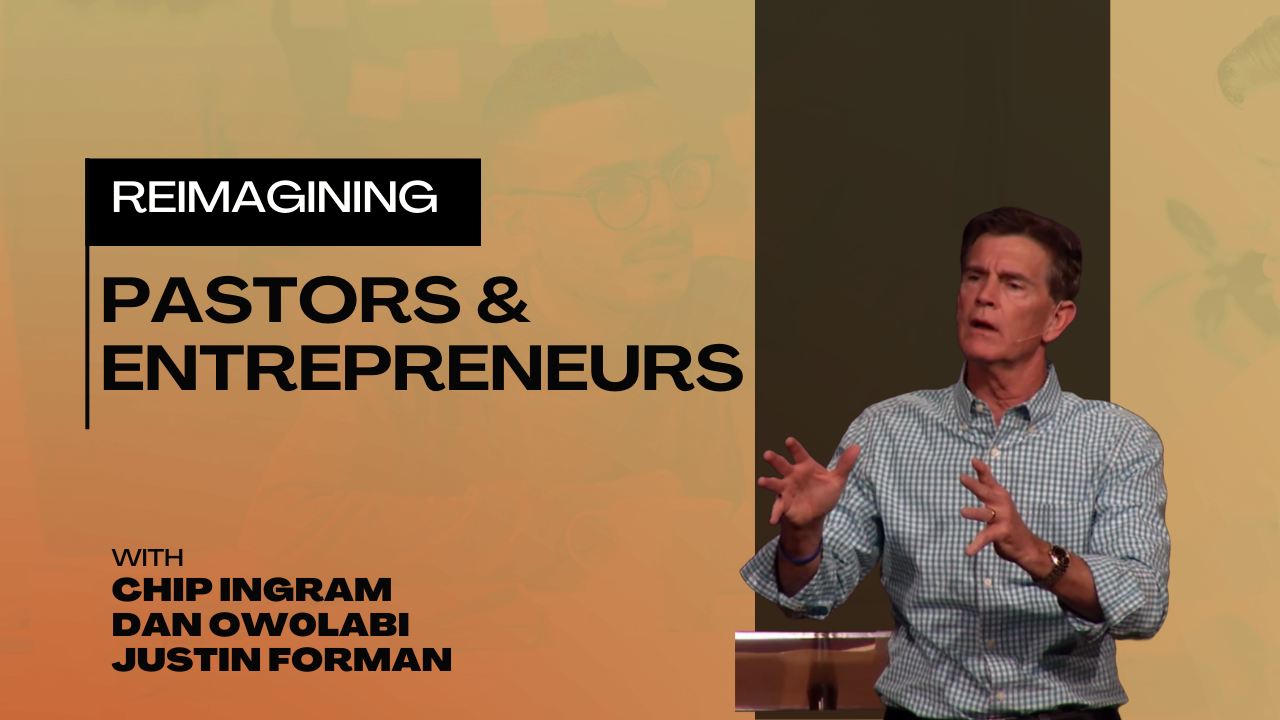
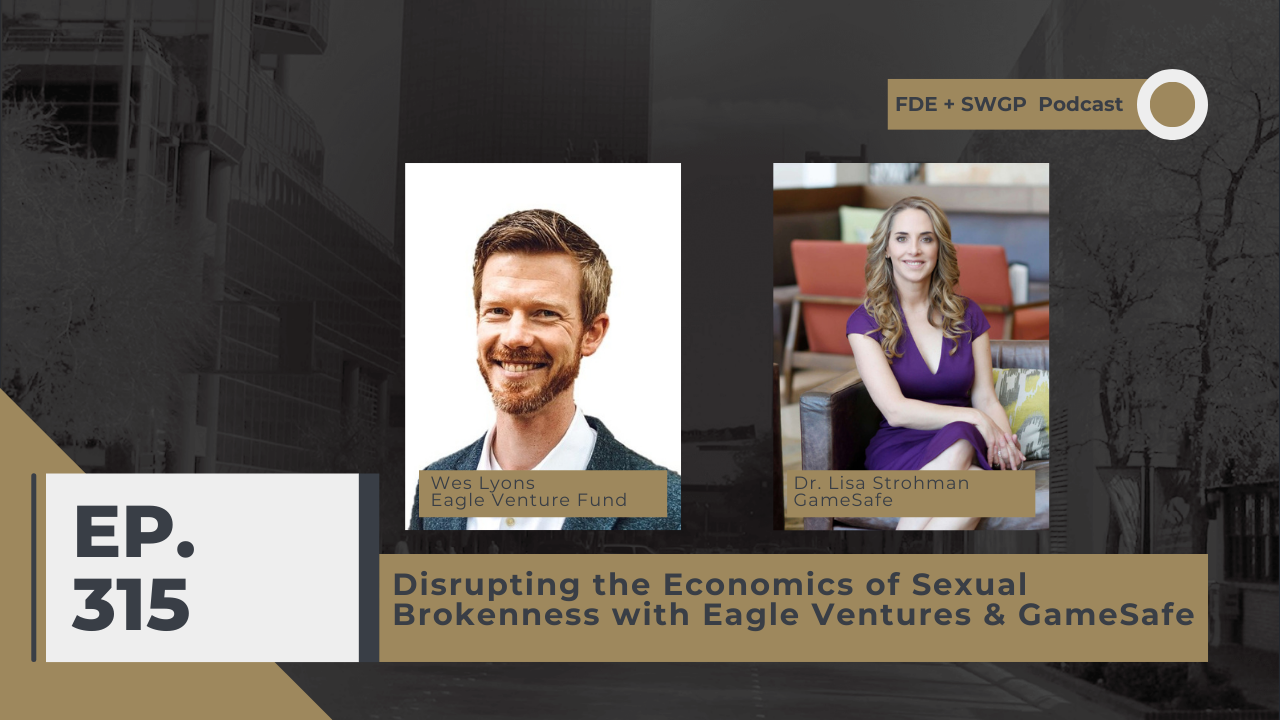
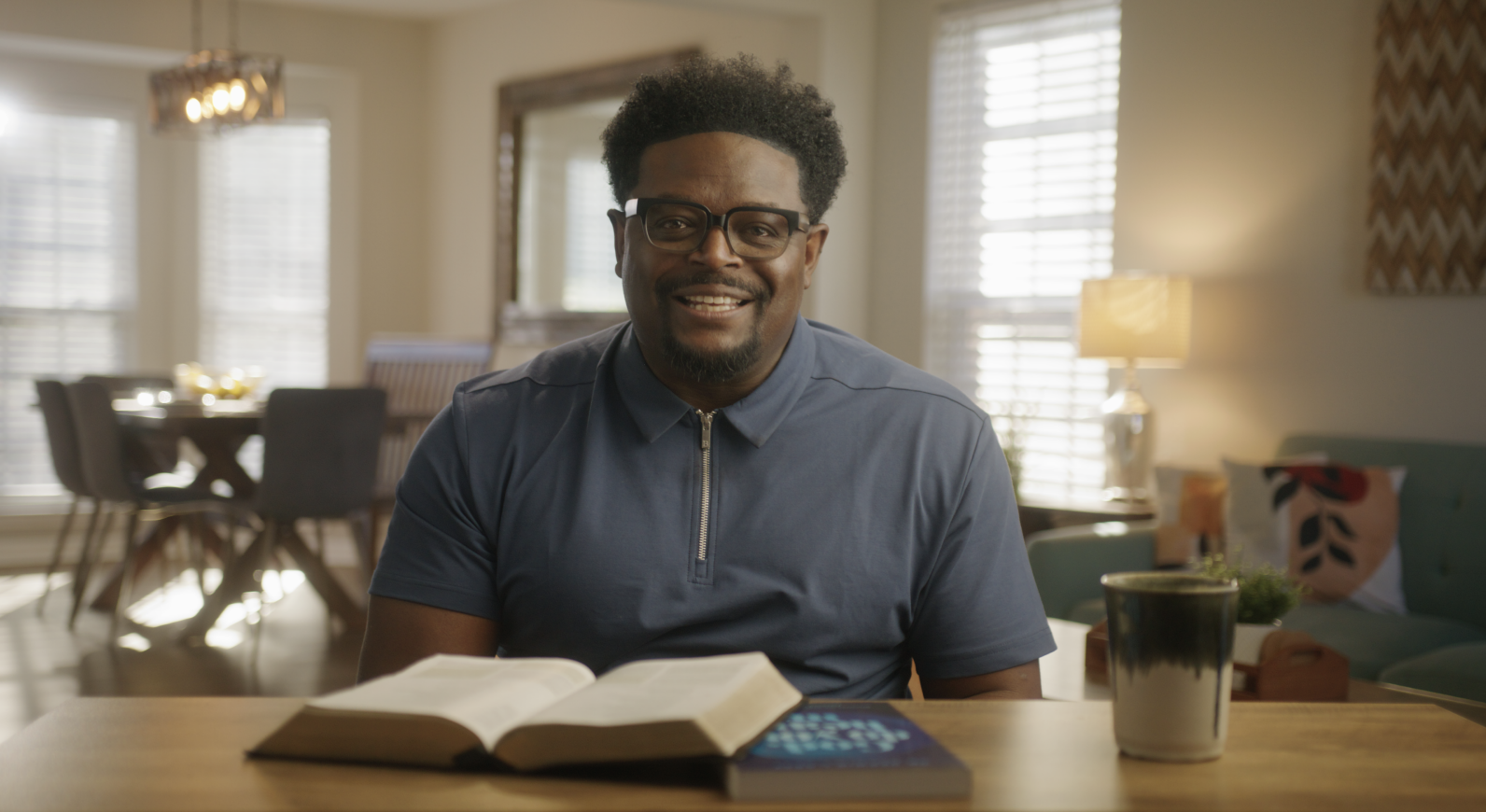
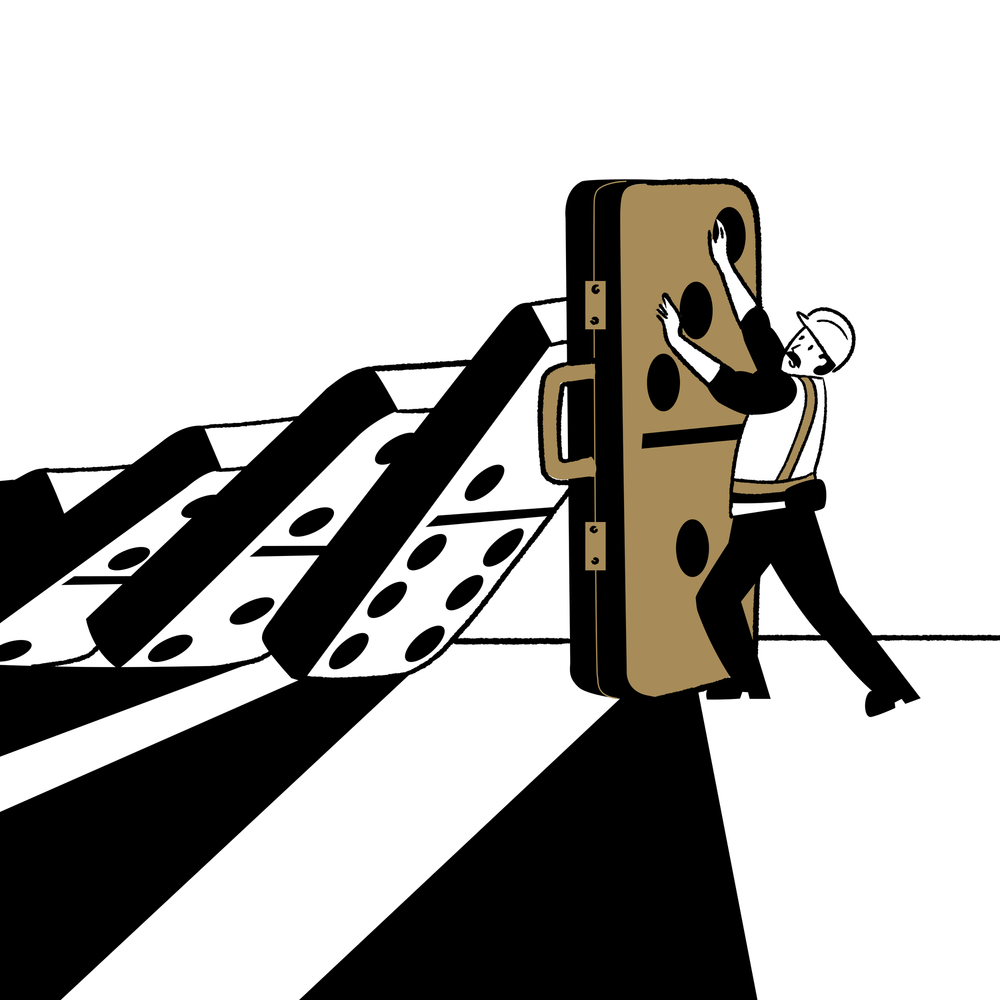
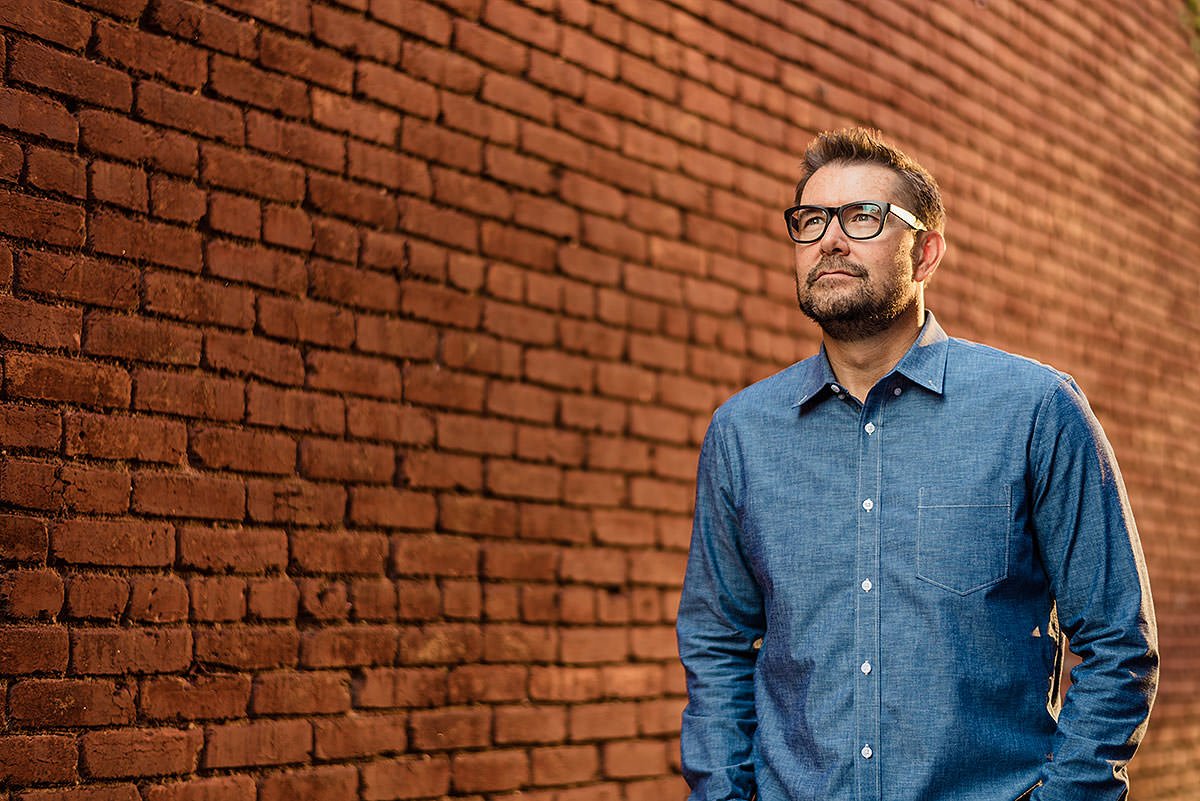
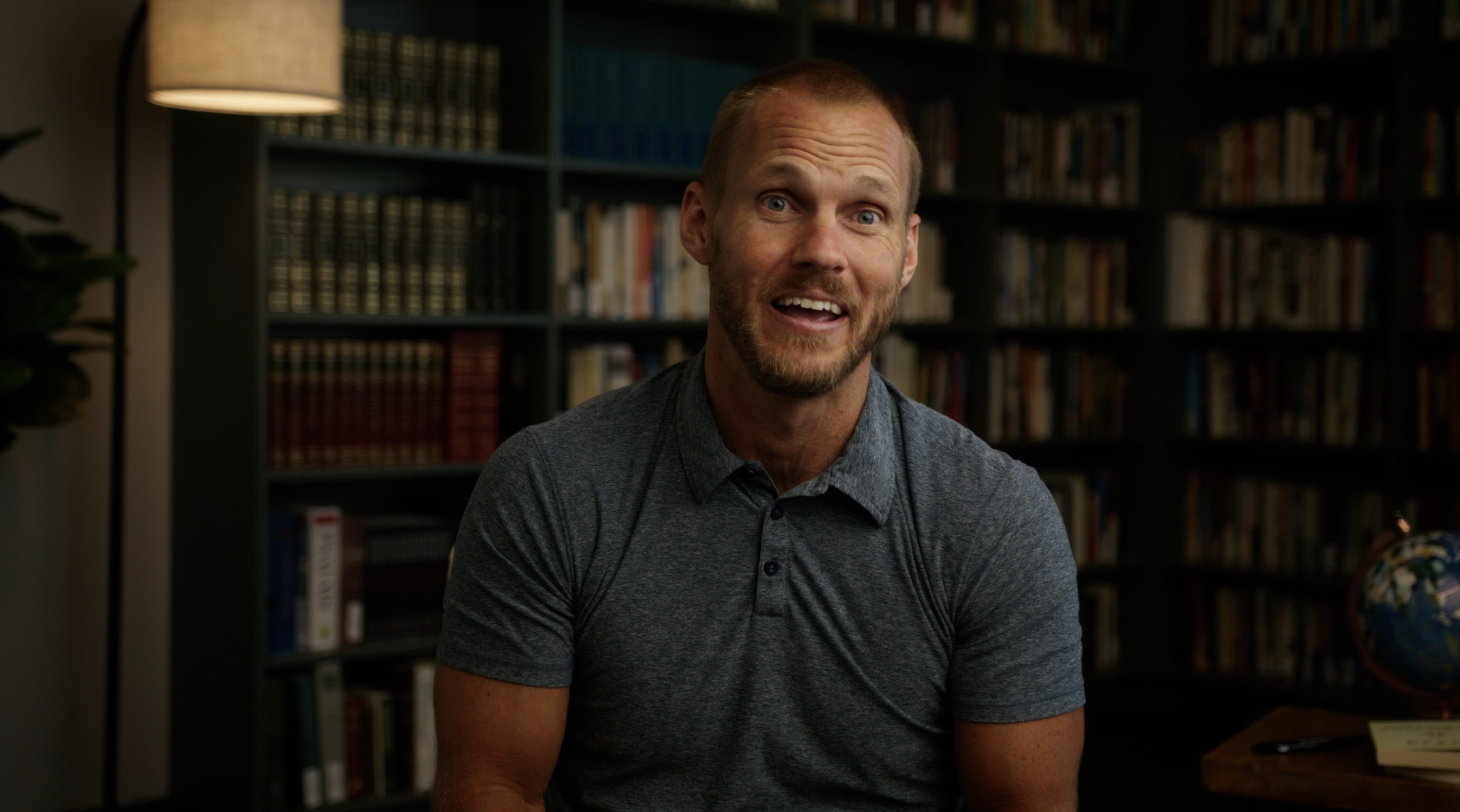
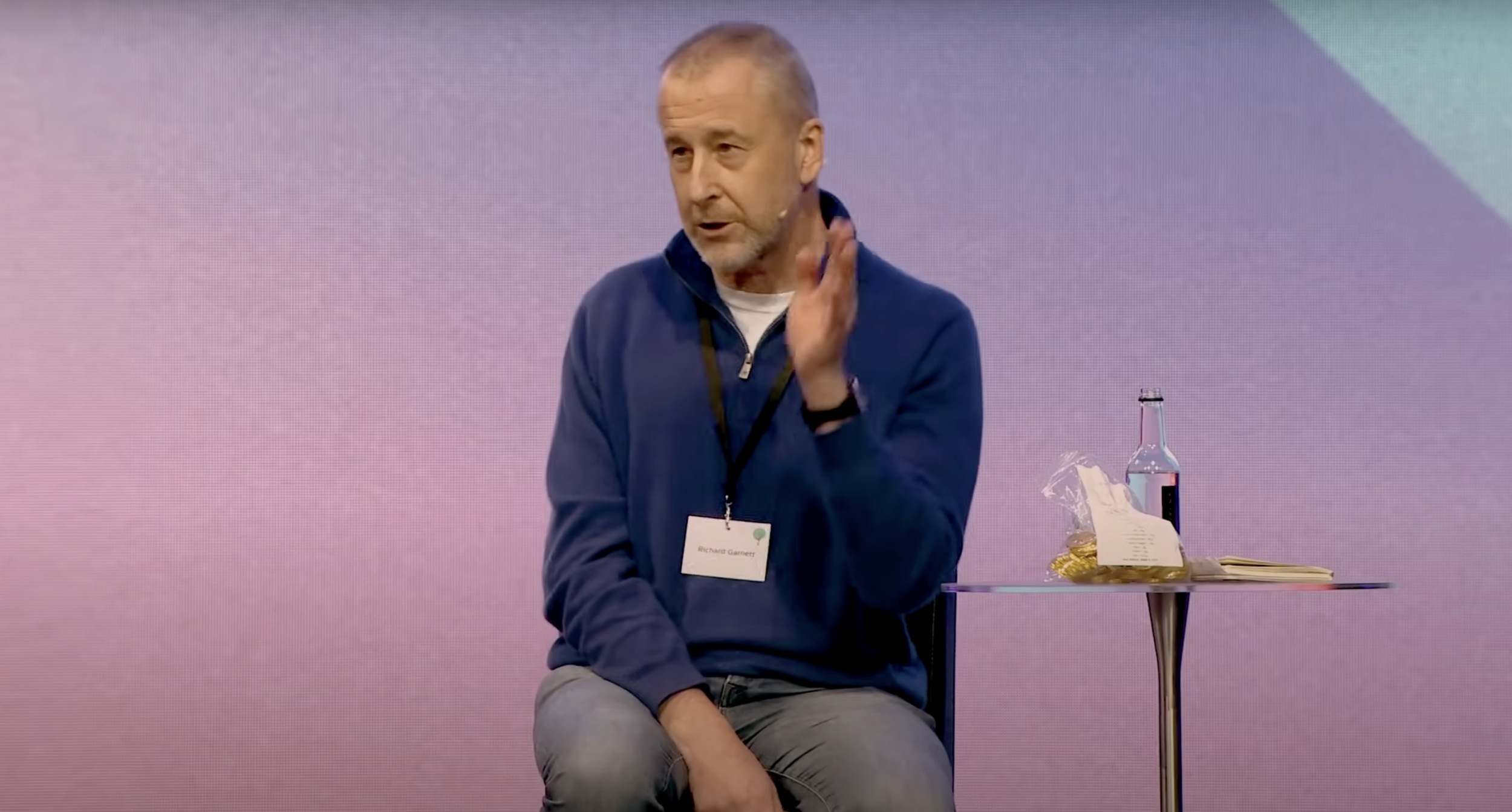
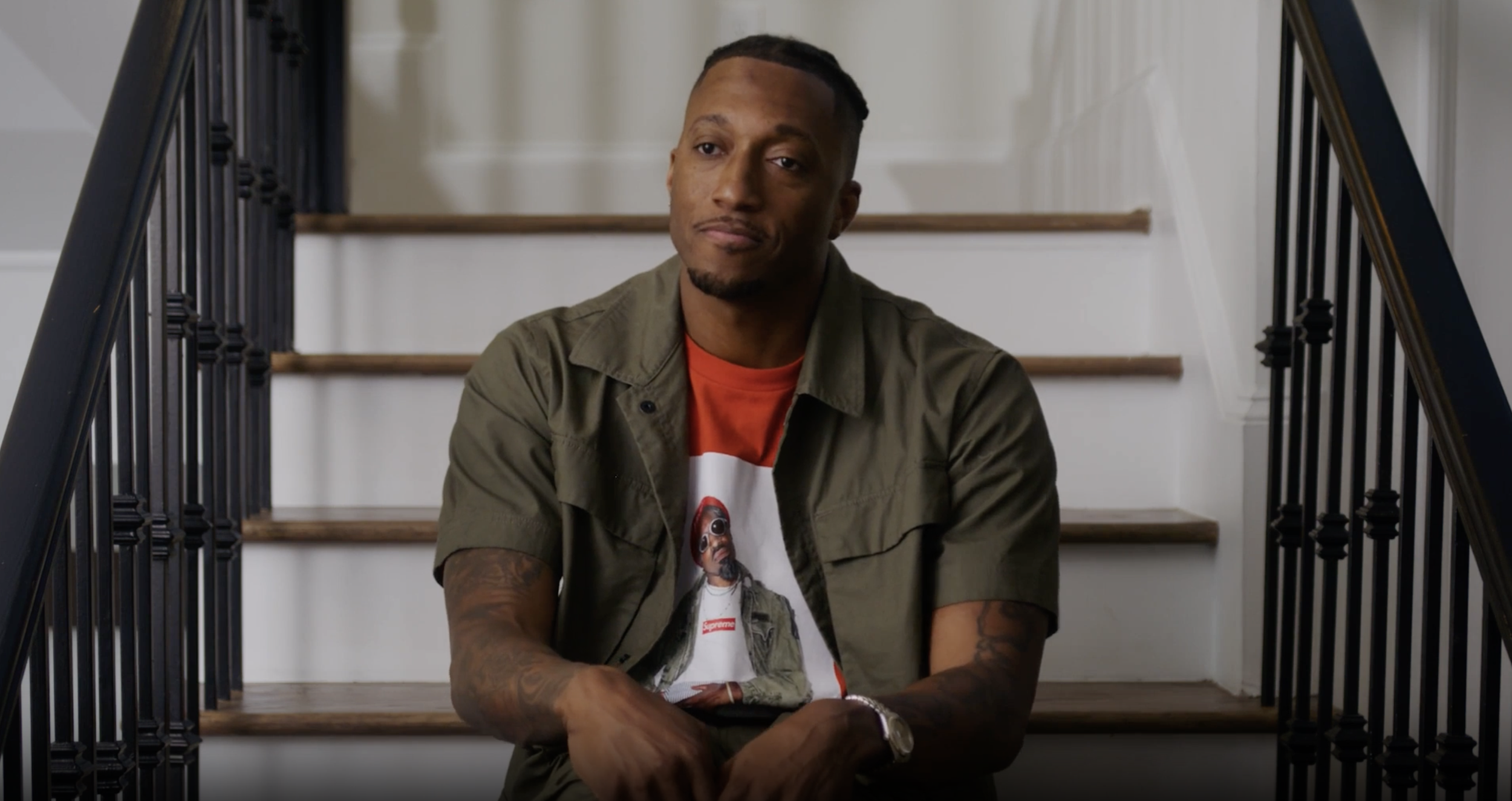
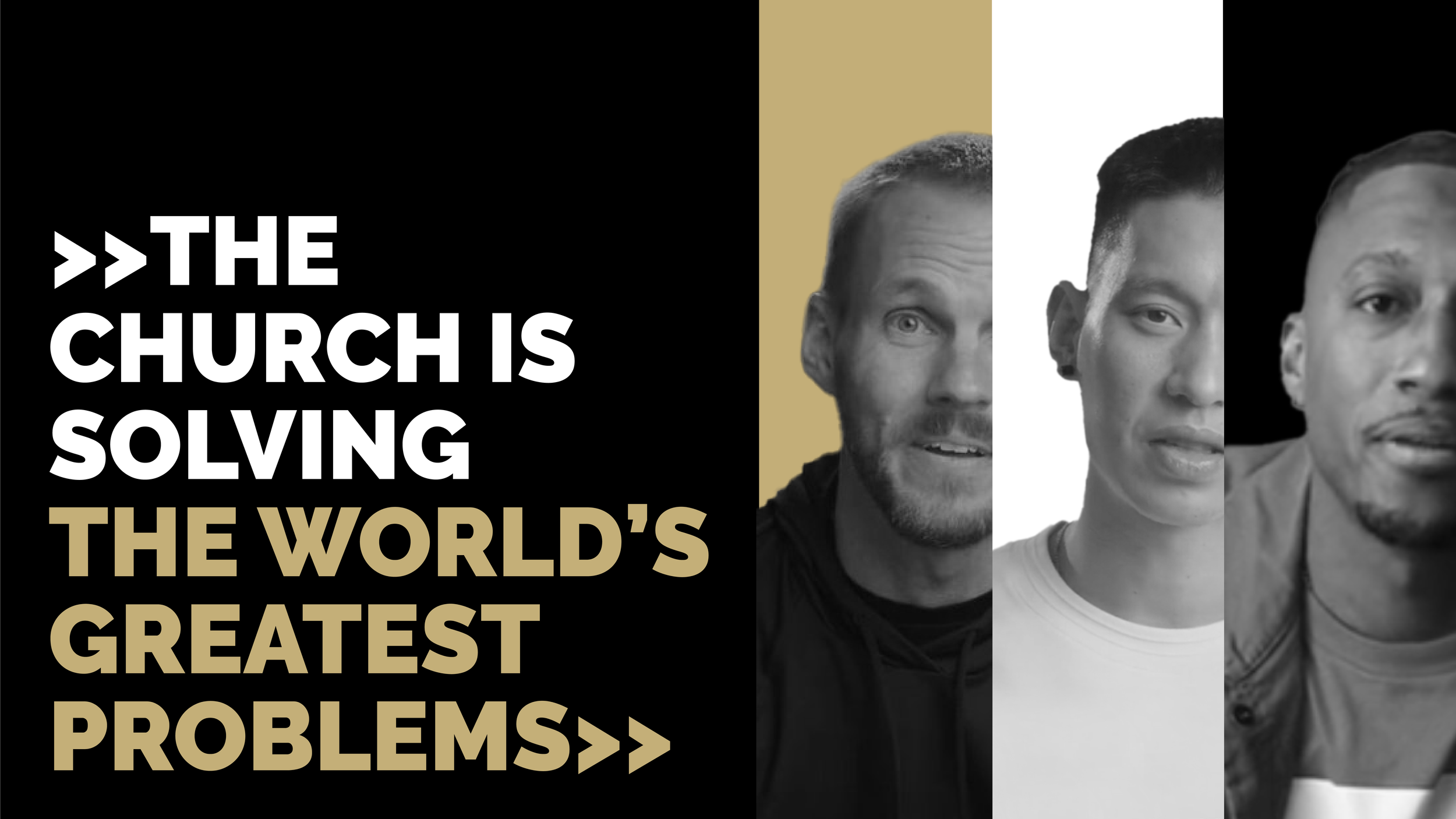
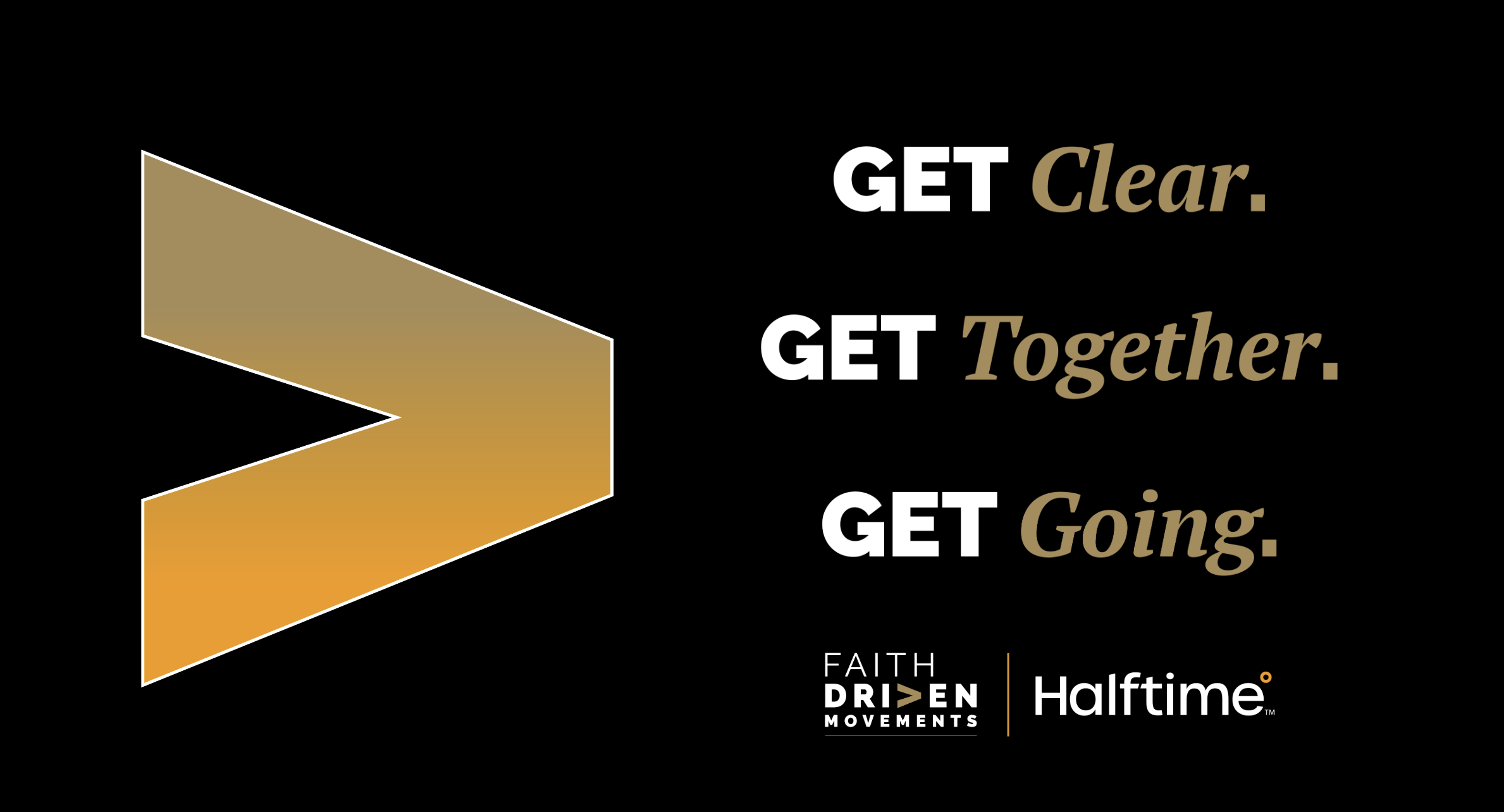
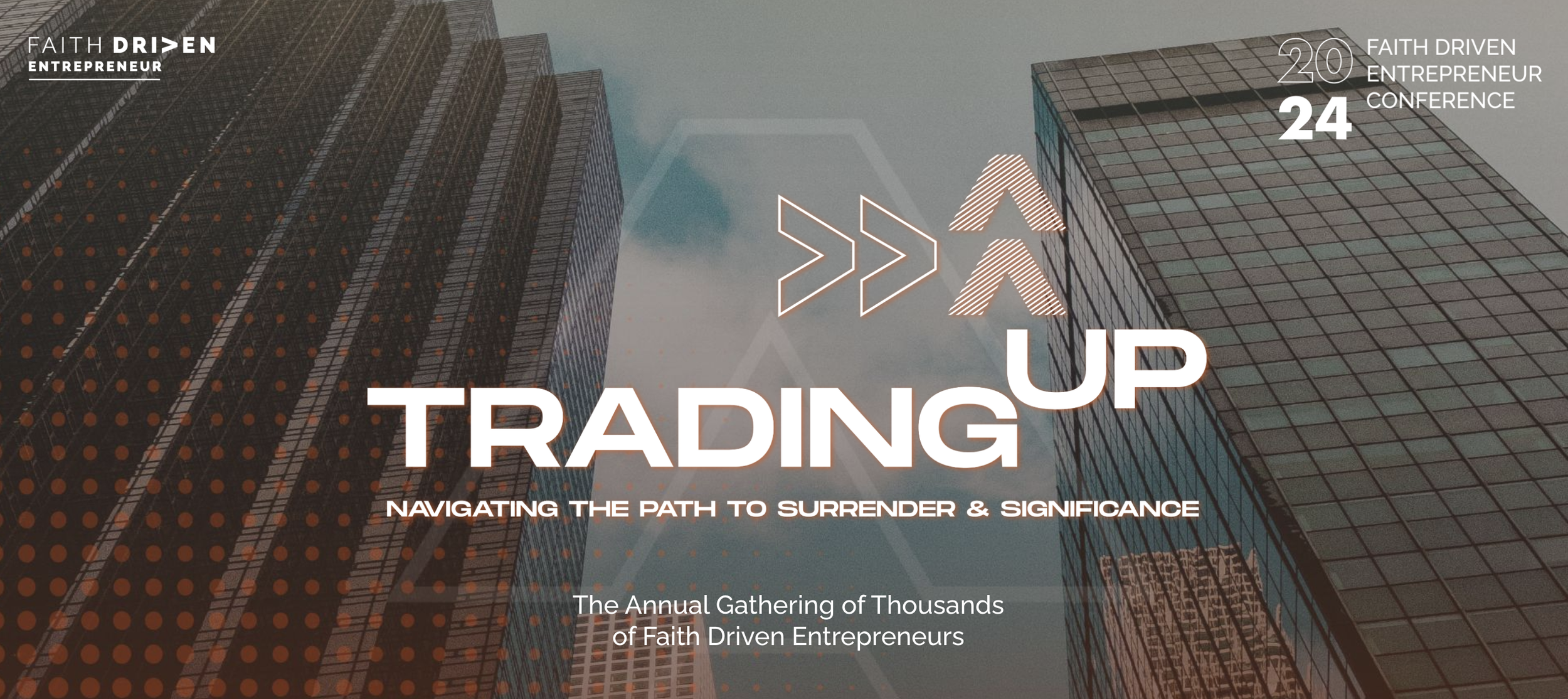
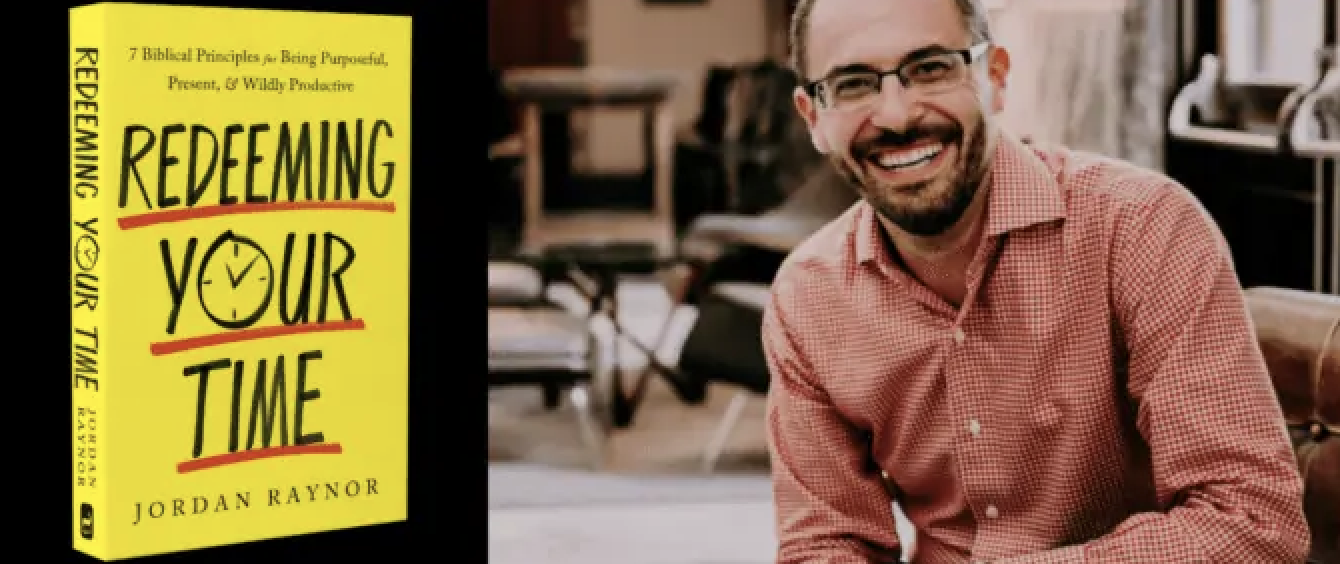
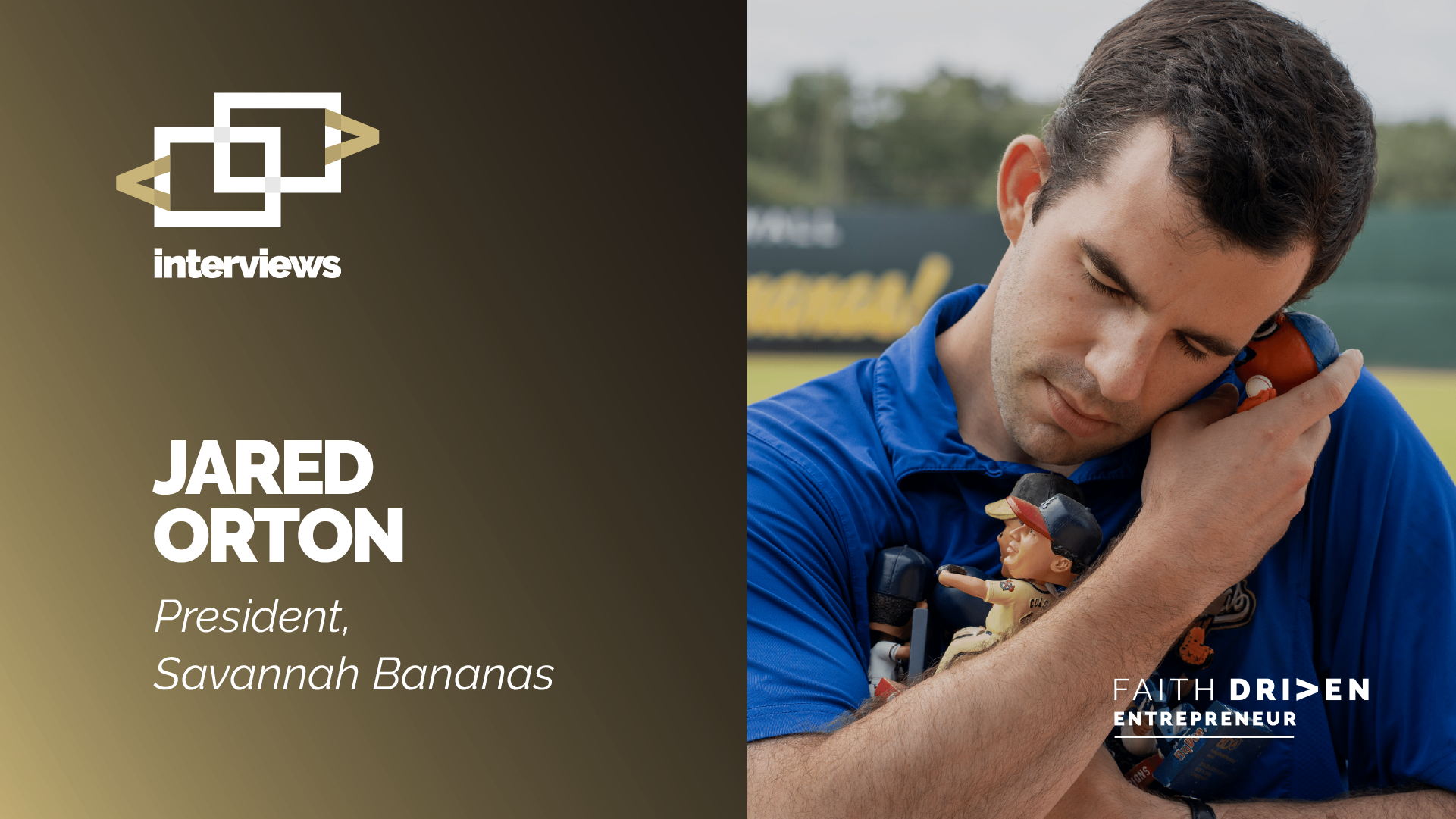
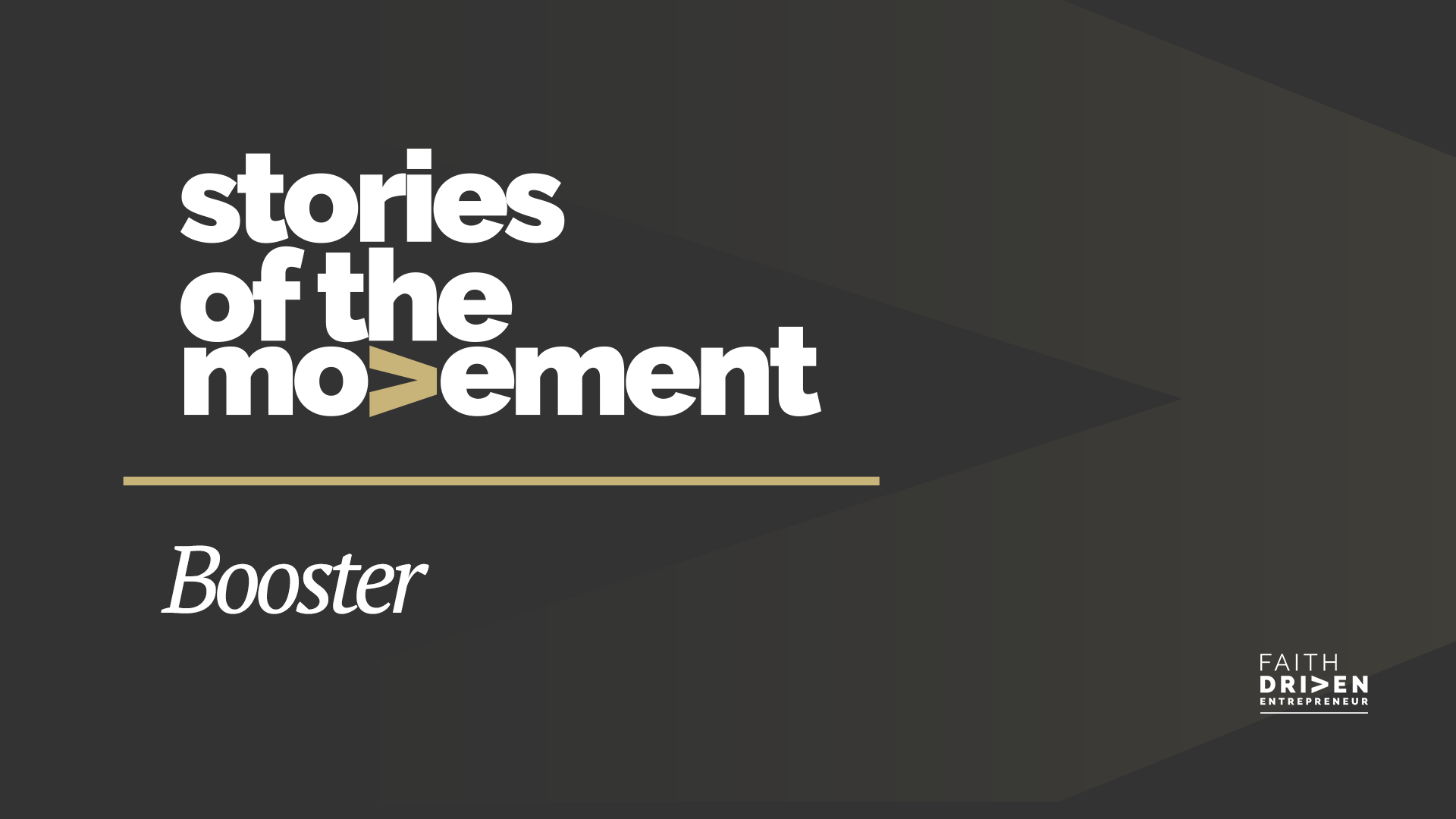
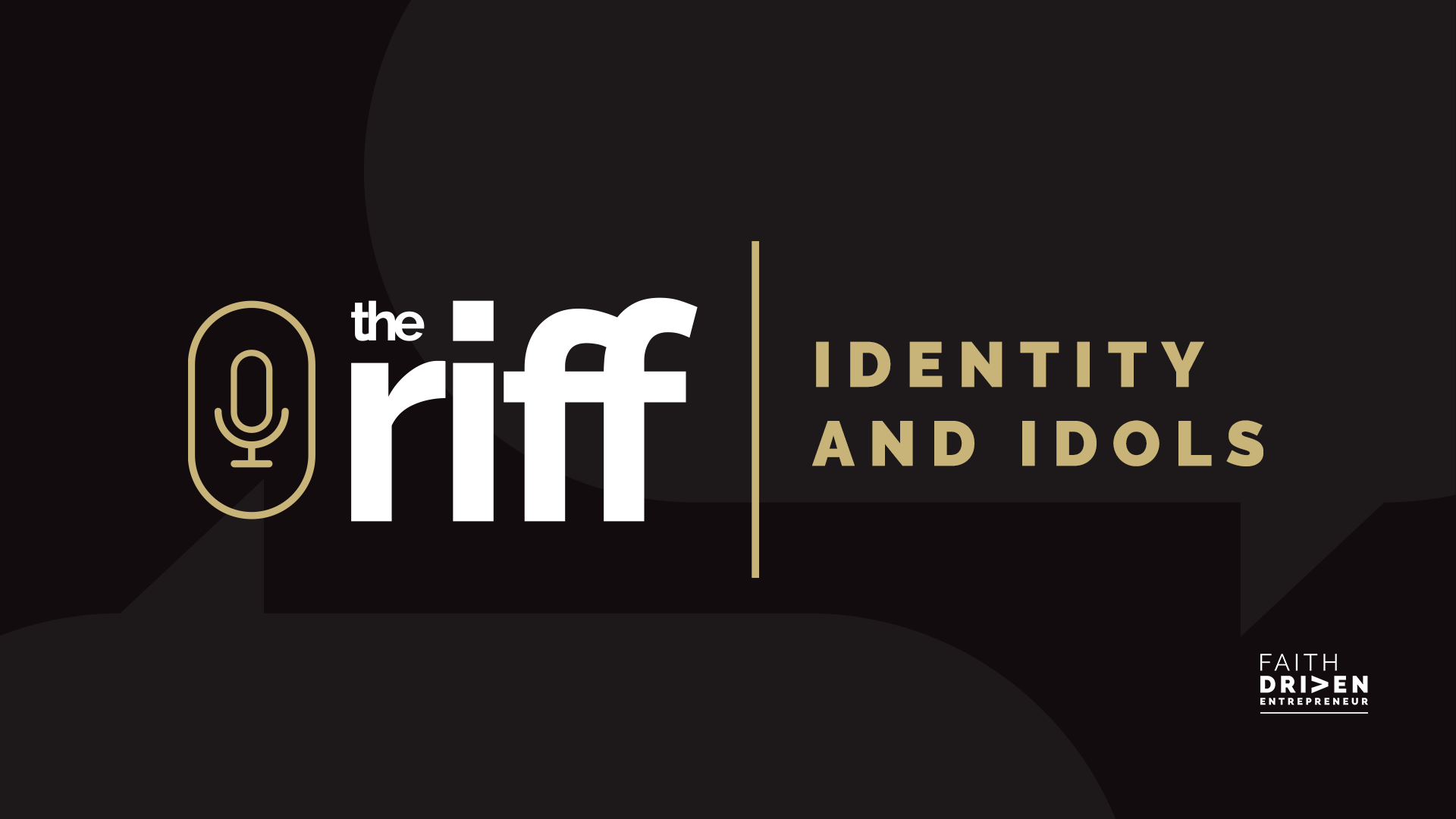
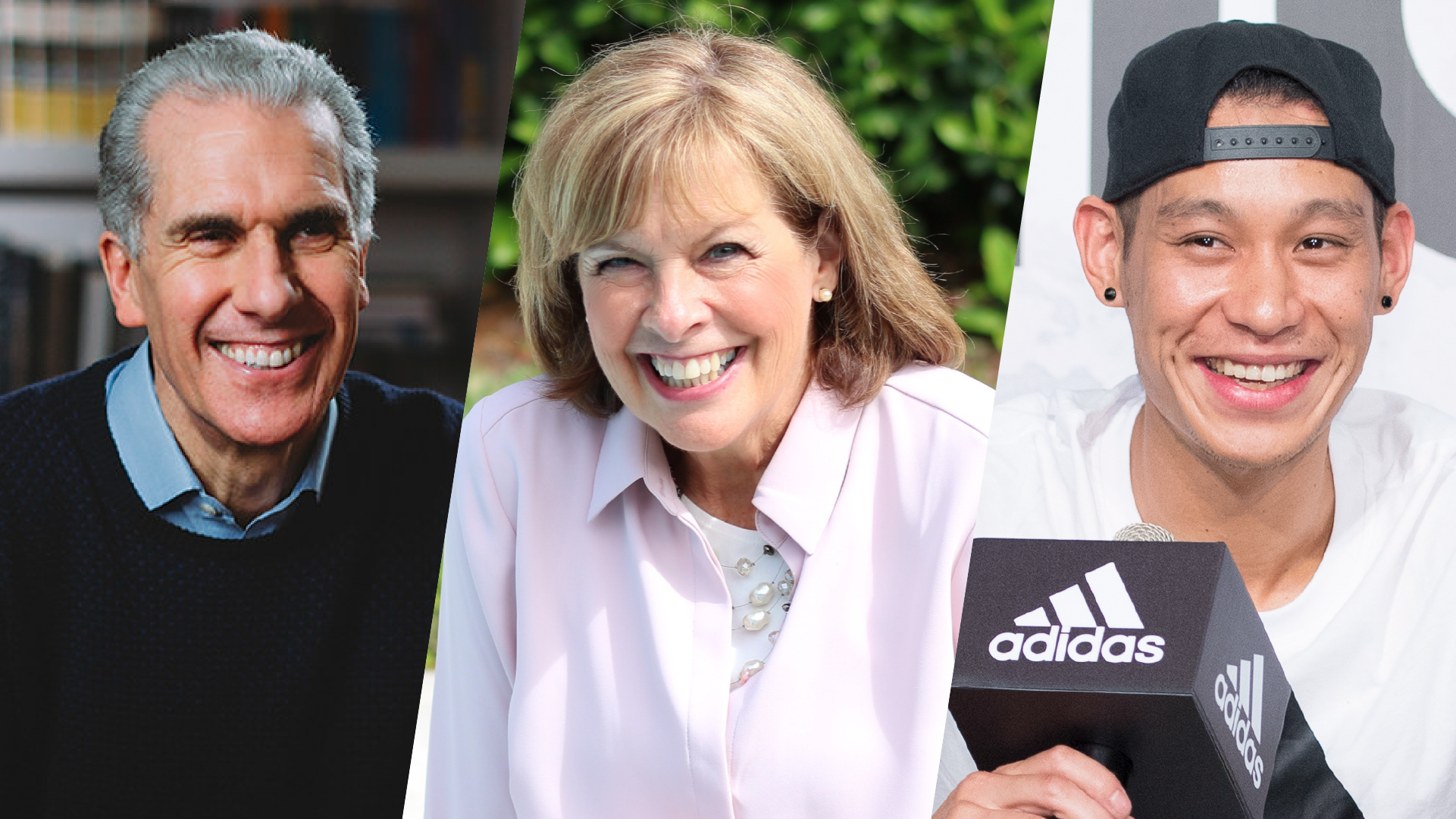
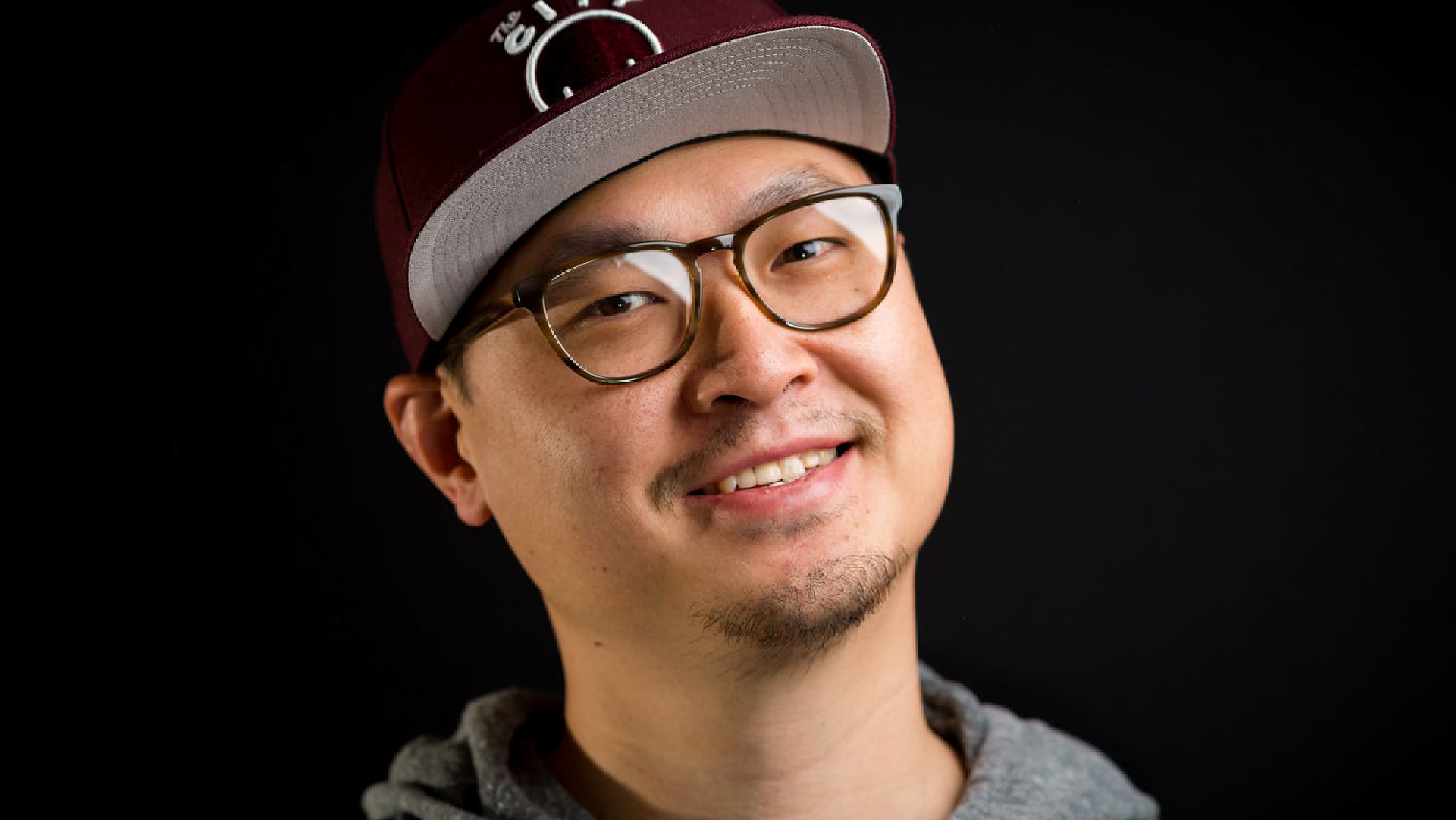
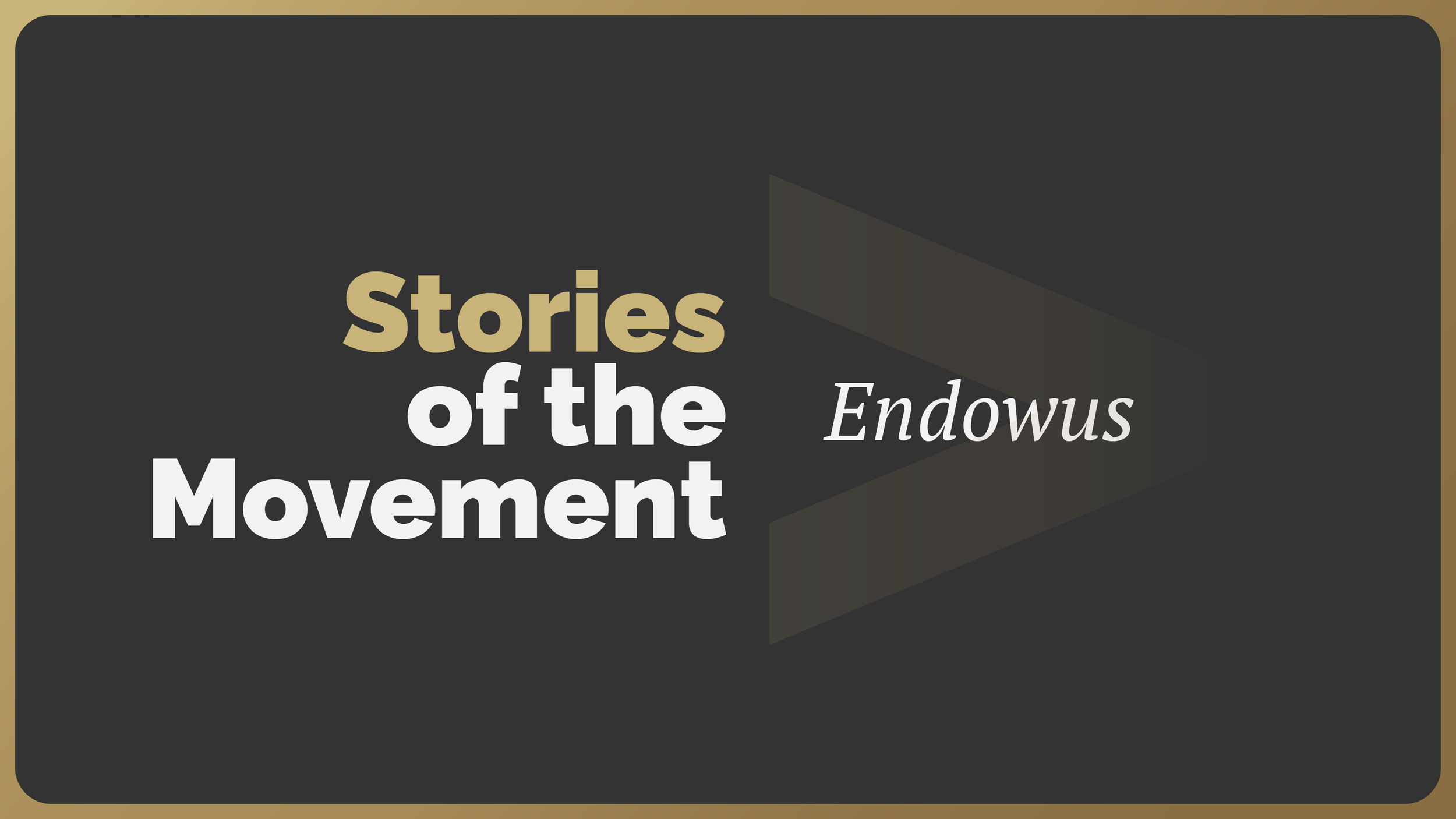

Follow the podcast